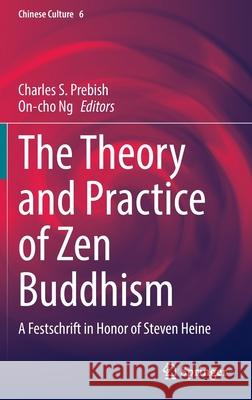The Theory and Practice of Zen Buddhism: A Festschrift in Honor of Steven Heine » książka
topmenu
The Theory and Practice of Zen Buddhism: A Festschrift in Honor of Steven Heine
ISBN-13: 9789811682858 / Angielski / Twarda / 2022 / 356 str.
The Theory and Practice of Zen Buddhism: A Festschrift in Honor of Steven Heine
ISBN-13: 9789811682858 / Angielski / Twarda / 2022 / 356 str.
cena 605,23
(netto: 576,41 VAT: 5%)
Najniższa cena z 30 dni: 539,74
(netto: 576,41 VAT: 5%)
Najniższa cena z 30 dni: 539,74
Termin realizacji zamówienia:
ok. 22 dni roboczych
Bez gwarancji dostawy przed świętami
ok. 22 dni roboczych
Bez gwarancji dostawy przed świętami
Darmowa dostawa!
Kategorie BISAC:
Wydawca:
Springer
Język:
Angielski
ISBN-13:
9789811682858
Rok wydania:
2022
Ilość stron:
356
Waga:
0.67 kg
Wymiary:
23.39 x 15.6 x 2.06
Oprawa:
Twarda
Wolumenów:
01
Dodatkowe informacje:
Wydanie ilustrowane











